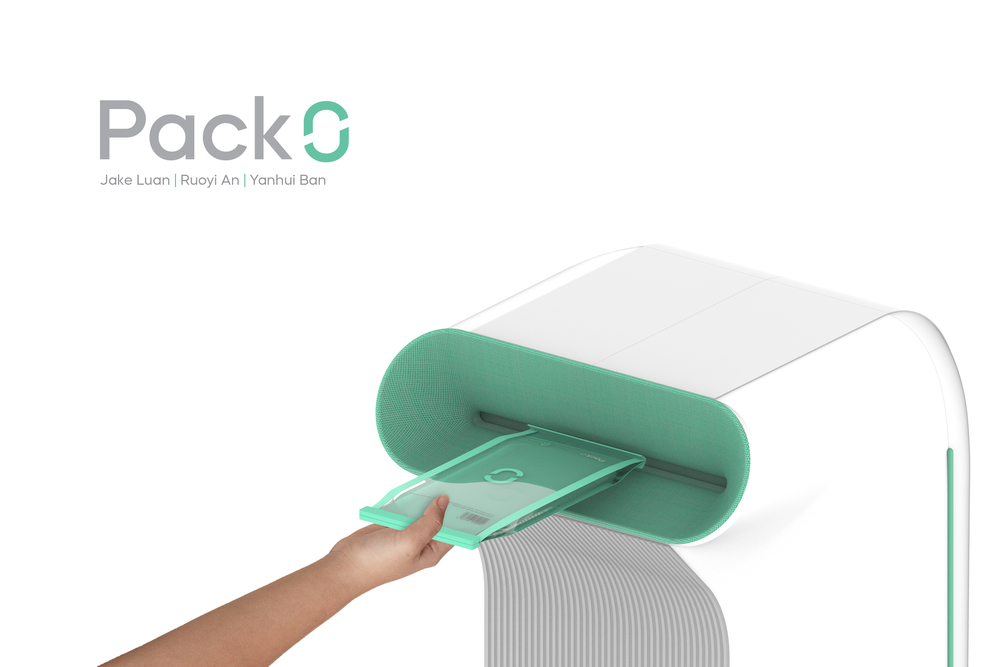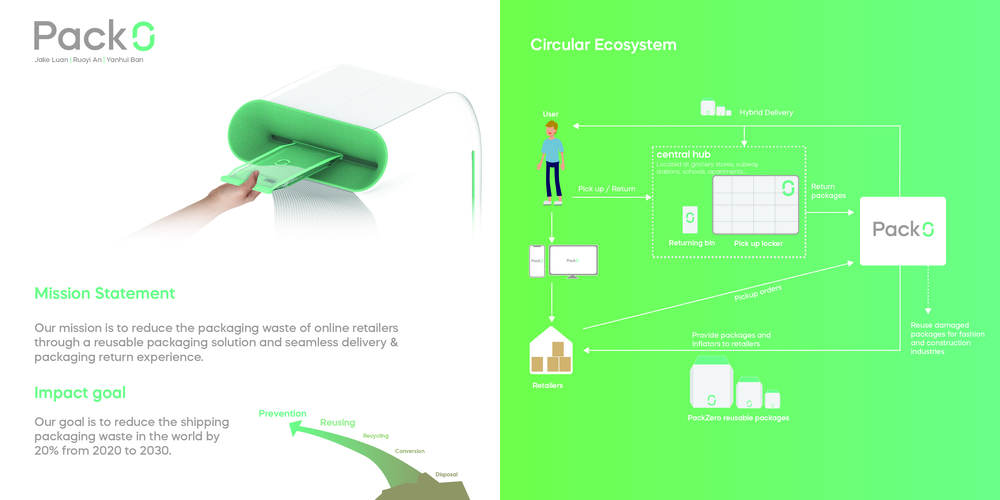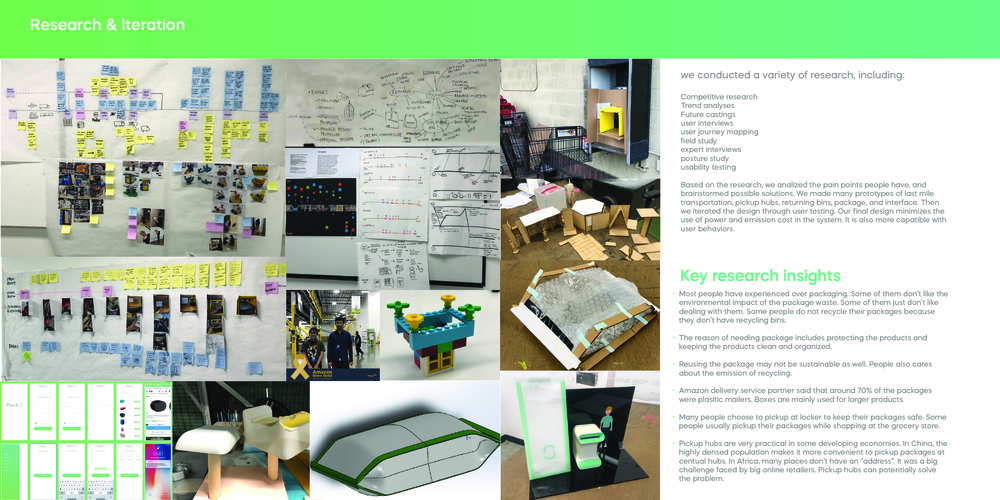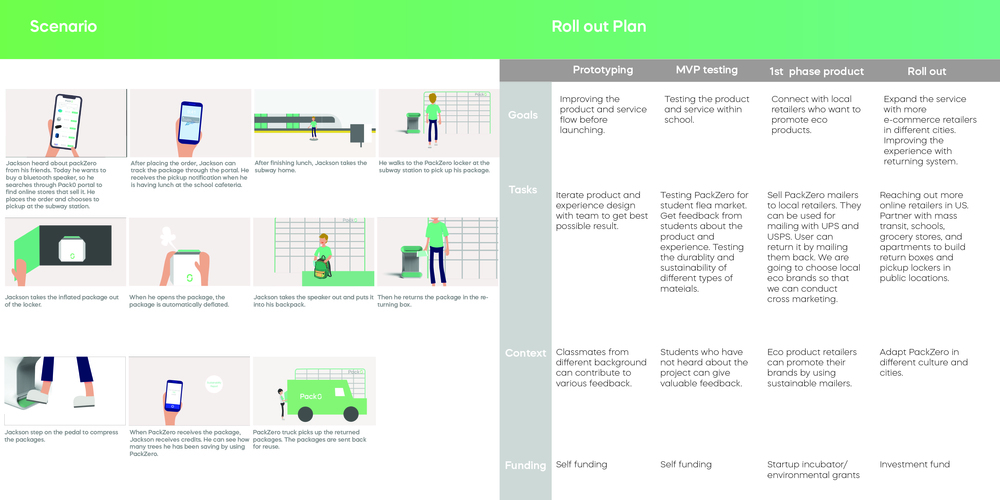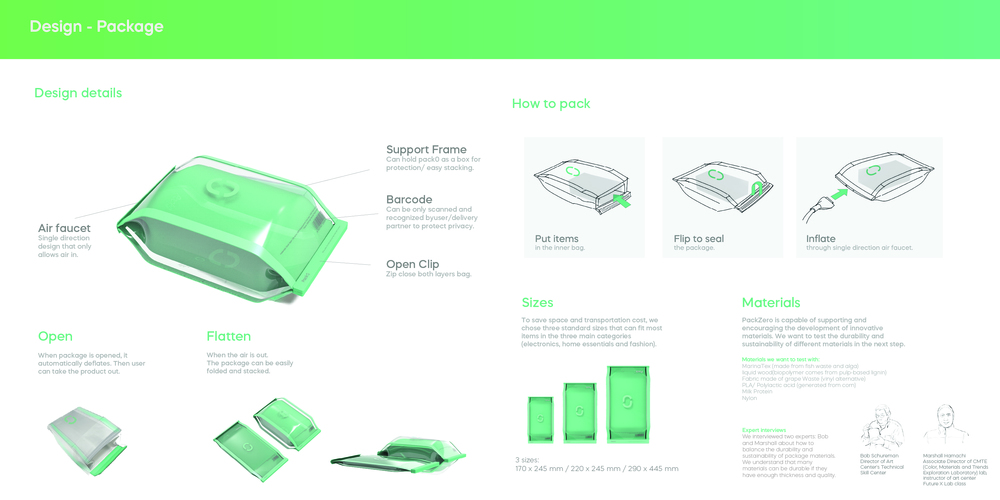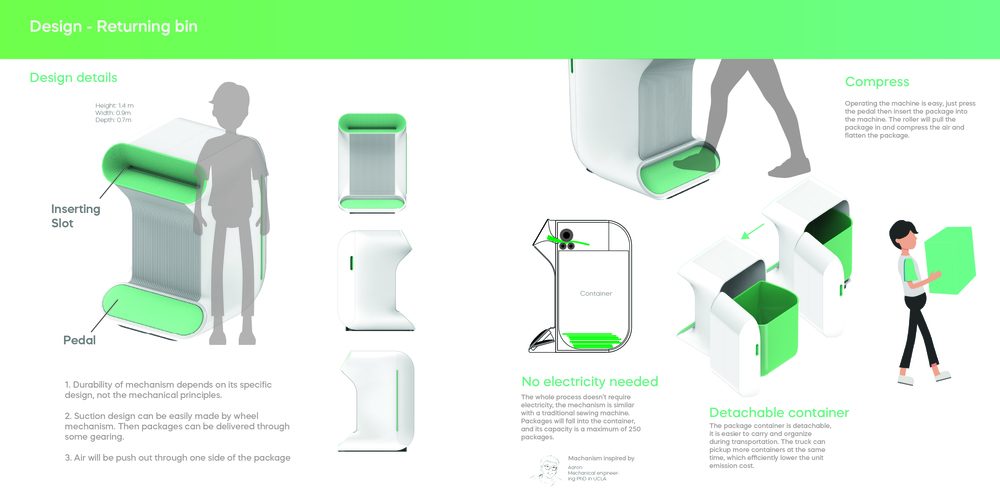Honorable Mention
Founder’s Choice Award Winner, BE OPEN
PackZero
A circular delivery network that combines reusable packaging with hybrid pickup and delivery
Solution
PackZero proposes to transform the current resource depleting online retail distribution system, with a circular delivery network that combines inflatable reusable packaging with hybrid pickup and delivery experience. We will build central hubs at locations that users frequent or find easily accessible, thereby reducing overall ‘product miles.’ The reusable package is made of durable biodegradable material, which research estimates can be potentially used up to 100 times.
Project Description
Online retail, and expeditious delivery, has brought more choices and convenience to people. However, it is also placing a tremendous burden on natural as well as man-made systems. Packaging waste is a growing environmental, social and economic issue in many countries, including the United States. Amazon claimed that they reduced the use of boxes. As a consequence, more plastic mailers were used, potentially contributing to the plastic packaging burden. PackZero’s mission is to reduce the packaging waste of online retailers through a reusable packaging solution and seamless delivery & packaging return experience. Our goal is to reduce the shipping packaging waste in the world by 20% from 2020 to 2030.
Overview of the Solution
Why do we care? Online retail, and expeditious delivery, has brought more choices and convenience to people. However, it is also placing a tremendous burden on natural as well as man-made systems. Packaging waste is a growing environmental, social and economic issue in many countries, including the US. In 2018, about 165 billion packages were shipped in the US and generated 1.3 million tons of cardboard waste, which roughly equating to more than 1 billion trees. Recently, Amazon claimed that they reduced the use of boxes. As a consequence, more plastic mailers were used, potentially contributing to the plastic packaging burden.
Research In order to design feasible and engaging human experiences, we conducted a variety of appropriate research, including user interviews, user journey mapping, field study, and posture study. We also did competitive research, trend analysis, expert interviews, and KJ method to further understand the market and find the better solution. We learned that many people don’t recycle because they don’t have access to the recycling bins. Some people just don’t have time to spend on recycling. But most people feel badly about throwing away packing materials, and consider breaking down the boxes as time and energy consuming. We visited an Amazon fulfillment center, Amazon delivery station, and Amazon hubs, and learned about the process of fulfillment and last mile delivery. The emerging pickup hubs are changing behaviors, allowing people to pickup their deliveries while engaged in grocery shopping. Based on the research, we brainstormed many solutions around centralized delivery system that can not only reduce the use of packaging waste, but also reduce the emission caused by last mile delivery.
Our goal is to reduce the shipping packaging waste in the world by 20% from 2020 to 2030.
Our design combines inflatable reusable packaging with hybrid pickup and delivery experience. The inflatable reusable packaging can protect the product. The packaging deflates when it’s opened. User can easily return the packaging to the returning bin, which has a physical mechanism that can compress the packagings. This process can help us pickup more returned packagings each time, so that the unit emission cost of each packaging return will be reduced. Likewise, we choose to build central pickup and delivery hubs at locations that users frequent or find easily accessible. The overall ‘product miles’ is lower than deliver to door.
PROJECT TEAM
Ruoyi An, Yanhui Ban and Shijie Luan
INSTITUTION
ArtCenter College of Design, United States of America
Category
System
FACULTY/COURSE ADVISOR
Krystina Castella, Brian Boyl, Heidrun Mumper
STAKEHOLDERS
Public organizations: Mass transit organizations
Private companies: Grocery store chains
Other: educational organizations
